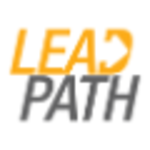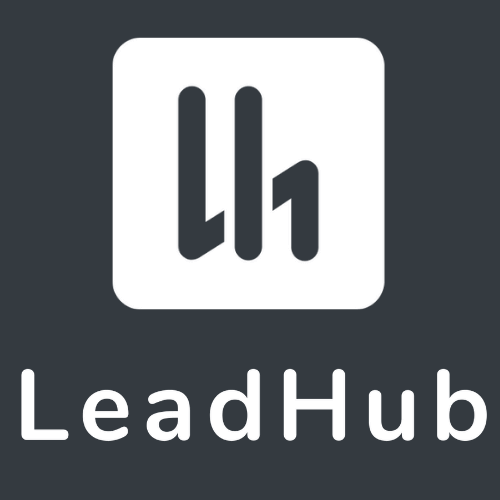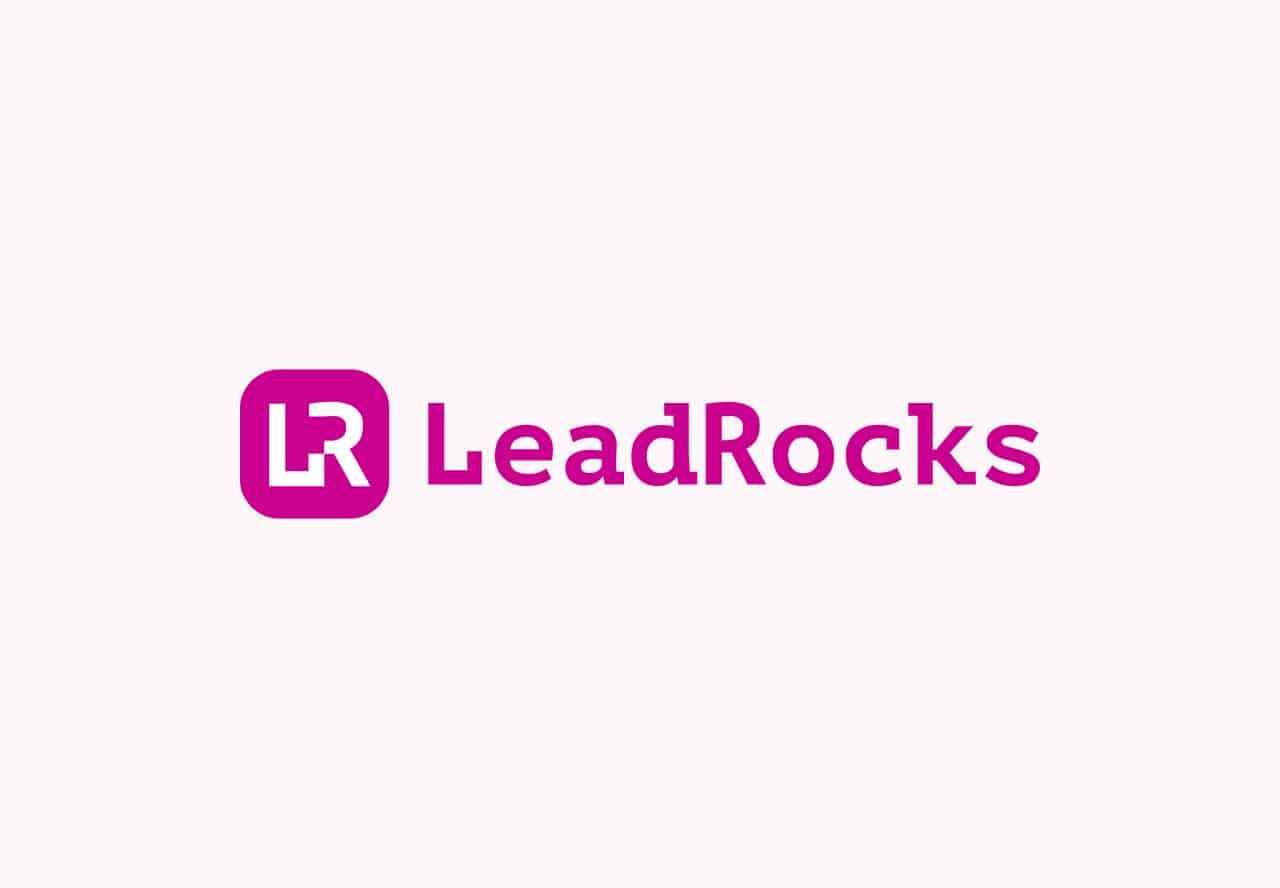Description

CompanyHub CRM

LeadPath
Comprehensive Overview: CompanyHub CRM vs LeadPath
CompanyHub CRM
a) Primary Functions and Target Markets:
CompanyHub CRM is designed to streamline sales processes and enhance customer relationship management. Its primary functions include:
- Lead Management: Organizing and tracking leads to ensure efficient sales follow-ups and conversions.
- Sales Automation: Automating repetitive tasks such as follow-ups, emails, and reminders, allowing sales teams to focus on closing deals.
- Email Tracking: Tracking email opens and clicks to gauge customer interest.
- Customization: Highly customizable fields and processes to fit various business needs.
- Reporting and Analytics: Comprehensive dashboards and reporting tools to analyze sales performance and make informed decisions.
- Integration Support: Integrates with various third-party applications like Gmail, Mailchimp, and Zapier to create a seamless workflow.
The target markets for CompanyHub CRM are small to medium-sized businesses (SMBs) seeking an affordable yet powerful CRM tool to enhance sales efficiency and customer management without the complexity of larger enterprise systems.
b) Market Share and User Base:
CompanyHub CRM has carved a niche within the SMB sector. While it does not capture a significant portion of the overall CRM market dominated by giants like Salesforce and HubSpot, it maintains a steady user base among smaller companies that value customization and affordability. Precise market share data might not be readily available, but CompanyHub is recognized as a viable alternative for businesses looking for flexible solutions at a competitive price point.
c) Key Differentiating Factors:
- Customization: CompanyHub's standout feature is its depth of customization, allowing businesses to tailor the CRM to fit unique processes and workflows.
- Affordability: Priced competitively, it offers robust features at a lower cost compared to enterprise-level CRMs.
- User-Friendly Interface: Known for its intuitive user interface, reducing the learning curve for new users.
LeadPath
a) Primary Functions and Target Markets:
LeadPath is a lead management and automation software primarily focused on:
- Lead Capture and Distribution: Efficient capturing of leads from various sources and intelligent distribution to sales teams based on predefined criteria.
- Form Automation: Creation and management of custom capture forms to gather pertinent lead information.
- Lead Scoring: Automated scoring and qualification of leads to prioritize sales efforts on high-potential prospects.
- Detailed Analytics: Insights into lead sources, conversion rates, and team performance through analytics and reporting.
LeadPath targets businesses that generate a significant volume of leads and require advanced sorting, scoring, and distribution capabilities. It is particularly popular among agencies, real estate firms, and enterprises with dedicated sales teams.
b) Market Share and User Base:
Like CompanyHub, LeadPath does not dominate the broader market but serves a specific need within organizations that are highly lead-driven. It sees strong adoption in sectors where lead volume and speed of distribution to the appropriate teams are crucial, though detailed market share figures aren't typically disclosed.
c) Key Differentiating Factors:
- Lead Distribution and Scoring: Focuses heavily on intelligent lead distribution and scoring, appealing to businesses with a high volume of incoming leads that need efficient sorting.
- Form Capabilities: Strong capabilities in creating and managing custom forms, which is a significant value for companies needing specialized data capture.
- Integration for Lead Sources: Emphasizes integration with various lead sources, allowing streamlined capture from multiple channels.
Comparative Overview:
While both CompanyHub CRM and LeadPath serve to manage leads and enhance sales, their approaches and specializations cater to different business models and needs. CompanyHub CRM's strength lies in its customization and overall CRM functionality for small to medium businesses, making it suitable for companies looking for a versatile and affordable CRM solution. LeadPath, on the other hand, shines with its ability to handle large volumes of leads with advanced distribution and scoring, making it an excellent choice for lead-heavy industries such as real estate, marketing agencies, and large enterprises. As such, businesses should evaluate their specific needs around lead management and sales processes to choose the most appropriate tool.
Contact Info

Year founded :
2015
+1 401-355-2544
Not Available
India
http://www.linkedin.com/company/companyhub

Year founded :
2015
+1 312-219-9660
Not Available
United States
http://www.linkedin.com/company/leadpath
Feature Similarity Breakdown: CompanyHub CRM, LeadPath
When comparing CRM software like CompanyHub and LeadPath, it's important to break down their features to see where they align and where they differ. Here’s a feature similarity breakdown based on general CRM offerings up to 2023:
a) Core Features in Common:
Both CompanyHub and LeadPath, like most CRM systems, usually offer a range of core features typical for managing customer relationships. These may include:
-
Contact Management: Both platforms likely offer capabilities for storing and organizing contact information, tracking interactions, and managing customer relationships.
-
Lead Management: Features for capturing, tracking, and managing leads throughout the sales process are typically standard in both systems.
-
Pipeline Management: Allowing users to visualize and manage the sales pipeline to track deals and opportunities.
-
Email Integration: Integration with email services to allow for communication tracking, including the ability to send and receive emails within the CRM.
-
Reporting & Analytics: Basic reporting functionality to track KPIs, generate sales reports, and analyze data related to customer interactions and sales performance.
-
Task Management: Tools for creating, assigning, and tracking tasks related to customer management.
-
Customization Options: Both platforms often offer customization options to tailor the CRM to the specific workflows and processes of the business.
b) User Interface Comparisons:
While I don't have real-time visual data to compare the user interfaces between CompanyHub and LeadPath, some general considerations include:
-
CompanyHub: Known for its user-friendly interface with a focus on a spreadsheet-like view that makes managing contacts intuitive for users who prefer list-based organization. It emphasizes ease of use and quick navigation.
-
LeadPath: Typically, CRMs in this category focus on providing visual insights and detailed dashboards, but the specific look and feel can vary significantly. It may emphasize graphical data representations and customizable dashboards.
The efficacy of interfaces will ultimately depend on user preference, with some preferring a more list-centric view (like spreadsheets) while others may appreciate graphical dashboards and a visually driven approach.
c) Unique Features:
-
CompanyHub:
- Spreadsheet-like Interface: One of CompanyHub's unique offerings is its spreadsheet-like UI, which can be particularly appealing to users comfortable with Excel or spreadsheet-based data management.
- Automation Features: CompanyHub offers extensive automation for follow-ups and data entry, allowing for more streamlined workflows.
-
LeadPath:
- Lead Conversion Optimization: If LeadPath is focused on specific industries, it might offer unique tools or features aimed at optimizing the lead conversion process tailored to those sectors.
- Integration Capabilities: LeadPath may provide unique or deep integrations with other industry-specific tools, enhancing its utility for certain business contexts.
Ultimately, while both systems cover foundational CRM capabilities, the distinct characteristics and additional features of each platform will suit different business needs and user preferences. Always check the latest updates from the vendors themselves for the most accurate and feature-specific information.
Features

Not Available

Not Available
Best Fit Use Cases: CompanyHub CRM, LeadPath
CompanyHub CRM and LeadPath cater to different needs and scenarios, and each has distinct strengths that make them suitable for specific business types and projects. Here's a breakdown of their best fit use cases:
CompanyHub CRM
a) For what types of businesses or projects is CompanyHub CRM the best choice?
-
Small to Medium-sized Businesses (SMBs): CompanyHub CRM is designed to be user-friendly and cost-effective, making it ideal for small and medium-sized businesses that need to manage their customer relationships efficiently without the complexity and high costs associated with larger CRM systems.
-
Sales-focused Organizations: With features like automation in follow-ups, sales pipeline management, and customizable dashboards, CompanyHub CRM is particularly beneficial for businesses that need to streamline their sales processes and improve sales performance.
-
Businesses Requiring High Customization: CompanyHub allows high levels of customization. Businesses with unique processes or specific industries that require tailored solutions can benefit from its highly customizable nature.
-
Industries with Frequent Customer Interaction: Companies in industries like real estate, consulting, and travel that have frequent interactions with clients can leverage its communication tracking and automation features to enhance customer engagement and satisfaction.
LeadPath
b) In what scenarios would LeadPath be the preferred option?
-
Startups and Growth-focused Companies: LeadPath is well-suited for startups and businesses in growth stages that are focused on capturing and converting leads efficiently. Its lead management features help streamline the capture, scoring, and nurturing of leads.
-
Digital Marketing Agencies: LeadPath provides robust tools for managing and converting digital leads, making it a preferred choice for digital marketing agencies that need to track, manage, and analyze leads from various campaigns and sources.
-
Organizations with High Lead Volume: Companies that deal with a high volume of leads, such as e-commerce platforms or SaaS providers, will benefit from LeadPath’s capabilities in managing a large influx of leads while ensuring that high-potential leads are prioritized and nurtured effectively.
-
Teams Needing Advanced Lead Management and Scoring: Businesses that require sophisticated lead tracking, scoring, and nurturing processes can take advantage of LeadPath’s advanced features for ensuring that leads are qualified and moved through the sales funnel efficiently.
Differences in Industry Verticals and Company Sizes
c) How do these products cater to different industry verticals or company sizes?
-
Industry Verticals:
-
CompanyHub CRM supports a wide range of verticals by offering customizable features that can adapt to specific industry needs, such as real estate, travel, manufacturing, and more. Its flexibility allows businesses across various sectors to configure the CRM to their specific workflows and customer interaction needs.
-
LeadPath is particularly geared toward industries heavily reliant on digital marketing and online sales, such as tech startups, digital agencies, and e-commerce. Its emphasis on lead tracking and conversion is beneficial for sectors where the primary business model revolves around lead generation and conversion.
-
-
Company Sizes:
-
CompanyHub CRM is suitable for small to medium-sized businesses due to its ease of use, affordability, and customizable nature. It provides SMBs with a robust platform without the complexity of enterprise-level CRMs.
-
LeadPath can serve both small companies and larger organizations looking for sophisticated lead management capabilities. It offers scalable solutions that can grow with businesses as they expand their lead management activities.
-
In summary, CompanyHub CRM is best for SMBs and sales-oriented organizations requiring customizable and user-friendly CRM solutions. In contrast, LeadPath excels in environments where lead management is a priority, particularly in digital-focused industries and startups aiming for aggressive growth.
Pricing

Pricing Not Available

Pricing Not Available
Metrics History
Metrics History
Comparing teamSize across companies
Conclusion & Final Verdict: CompanyHub CRM vs LeadPath
When considering CRM options such as CompanyHub CRM and LeadPath, several factors come into play, including functionality, ease of use, pricing, customer support, and integration capabilities. Here's a conclusion and comparison of both products to help decide which might offer the best overall value and to provide specific recommendations.
a) Best Overall Value
Best Overall Value: CompanyHub CRM is likely to offer the best overall value for small to medium-sized enterprises looking for a versatile, user-friendly, and pricing-competitive CRM solution. Its strengths in customization and automation features can significantly benefit businesses looking to streamline sales processes and improve efficiency.
b) Pros and Cons
CompanyHub CRM:
Pros:
- Customization: Offers a highly customizable interface allowing businesses to tailor the CRM to meet specific needs.
- Automation: Strong automation features with built-in workflows that help reduce manual tasks.
- Ease of Use: Known for its user-friendly interface, which can be beneficial for teams with varying levels of technical expertise.
- Affordable Pricing: Generally offers competitive pricing, making it accessible for small to midsize companies.
- Integration: Supports integration with a variety of third-party applications, enhancing its functionality.
Cons:
- Advanced Features: May lack some advanced CRM features required by larger enterprises.
- Complex Needs: Not always suited for businesses with very complex CRM needs or those that require extensive customization beyond what is offered.
LeadPath:
Pros:
- Lead Management: Exceptional at managing inbound leads with a focus on capturing and nurturing them through customized landing pages and forms.
- Targeting Features: Offers robust targeting features for businesses focused heavily on lead acquisition and conversion.
- Ease of Setup: Quick setup process suitable for businesses wanting to get started promptly.
- Data Tracking: Provides comprehensive data tracking and analytics, beneficial for data-driven marketing strategies.
Cons:
- Niche Functionality: Primarily focused on lead management, which might not cover the full scope of activities a CRM is typically used for.
- Pricing: Can be on the higher side, especially if the primary need is beyond lead management.
- Limited CRM Features: May lack broader CRM functionalities needed for complex sales cycles or customer relationship management.
c) Recommendations
-
For Small to Medium Enterprises:
- Choose CompanyHub CRM if you need a comprehensive CRM solution with strong customization and automation at a competitive price. It is especially beneficial for businesses looking to enhance overall sales processes and reduce manual tasks.
-
For Businesses Focused on Lead Management:
- Opt for LeadPath if lead generation and nurturing are your top priorities, and if you require robust targeting and data tracking capabilities. It is ideal for companies with a strong emphasis on marketing-into-sales processes.
-
For Businesses with Complex Requirements:
- Consider evaluating both products in tandem with more established CRMs, if either lacks specific features you find essential. Integrating specific tools or exploring third-party add-ons might also help bridge the gaps.
In conclusion, your choice between CompanyHub CRM and LeadPath should align closely with your business's specific needs and priorities. For a full-featured CRM solution with affordability and ease of use, CompanyHub CRM may present the best value. Conversely, for powerful lead management and marketing capabilities, LeadPath is an exceptional contender. Always consider trialing both solutions to understand how they align with your workflow and business goals before making a final decision.
Add to compare
Add similar companies



